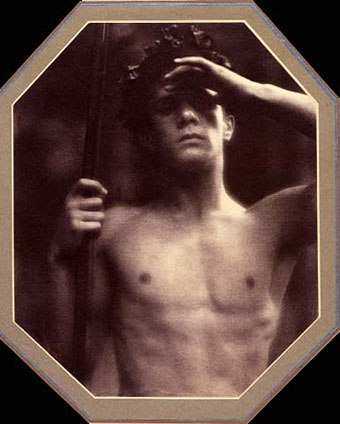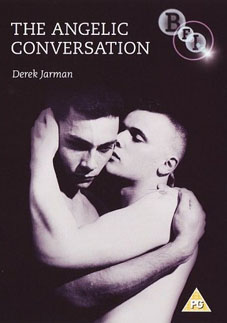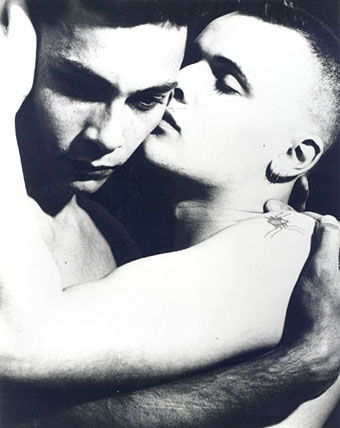
The Seven Words: “It is finished!” (1912).
Photographer and publisher Fred Holland Day (1864–1933) enjoyed the iconography of Easter enough to stage his own crucifixion tableau with friends, as well as producing a series of seven pictures based on Christ’s last words, of which the final poignant number is shown above. His 1898 crucifixion is homoerotic enough it might still cause a stir among today’s gay-hating cross-wavers if they saw it, and he had the audacity to play the part of Christ himself.
No surprise, then, that he also enjoyed photographing the unclothed bodies of young men which caused some controversy at the time. The examples of his pictures below display the same ritualistic qualities seen in some of Derek Jarman‘s films, especially the more formal compositions of The Angelic Conversation. I’ve never seen any acknowledgment of Day’s work from Jarman but, given that they both concerned themselves with Saint Sebastian, I’d be surprised if he wasn’t at least aware of these pictures.

Suffering the Ideal (no date).


